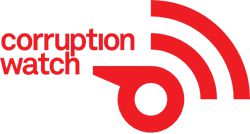Eskom board complicit in Koko suspension ruse

Former public enterprises ministers Lynne Brown interfered in the operational matters of the power utility, carrying out what appears to have been directives of Gupta associate Salim Essa, on who to suspend and who to appoint as their replacements. CEO Tshediso Matona, financial director Tsholofelo Molefe, head of group capital Dan Marokane and head of commercial and technology Matshela Koko were suspended on 11 March, following a board meeting which had earlier been addressed by Brown. They were all told that the board wished to execute an enquiry into the affairs of Eskom, and did not want them around so that there would not be interference with the investigation.
Suspensions
Koko’s suspension, however, was a farce, commission chairperson Chief Justice Raymond Zondo found, because the evidence that he was aware of, and helped arrange the suspensions of his colleagues, is convincing. This evidence is from three more executives, Suzanne Daniels, Abram Masango and Nonkululeko Dlamini, who all testified to having been called to meet Koko in Melrose Arch in Johannesburg on the eve of the suspensions.
Daniels said Koko was with Essa, who introduced himself to her as Brown’s advisor, and discussed imminent suspensions, as well as the best people to replace the executives affected. Masango had a similar version, but told the commission that he could not confirm that the man with Koko was indeed Essa. He was told that he would be appointed in an acting capacity to replace Marokane. Koko further told the two that he was also to be suspended, the commission heard from them. Dlamini’s evidence is that although Koko called her to meet with him at Melrose Arch, she declined as she was at an Eskom function with her then superior, Tsholofelo Molefe, who refused to release her.
Zondo notes: “When one has regard to the fact that he [Koko] and Mr Essa had meetings with Mr Masango and Ms Daniels on 10 March 2015, one understands that it could never have been the intention of the Guptas to get Mr Koko out of Eskom. They needed him as the evidence heard by the commission has revealed. He was later to be appointed the acting Group CEO – when Mr Brian Molefe left Eskom at the end of December 2016. The Guptas made sure that, when one Gupta associate who was the Group CEO of Eskom left, another Gupta associate took over as acting Group CEO.
“The Melrose Arch meetings reveal that the suspensions of Mr Matona, Mr Marokane and Ms Tsholo Molefe on 11 March 2015 were to enable the capture of Eskom. Mr Koko’s suspension was for a different purpose. It was meant to cause confusion and to ensure that, when later, the Guptas used him, there would be no suspicion of his association with the Guptas.”
Truth vs fabrications
Despite Koko’s denial of colleagues’ versions regarding the Melrose Arch meetings, Zondo found differently: “Mr Koko’s denial of the meetings at Melrose Arch involving him, Mr Essa, Mr Masango and Ms Daniels is a fabrication.
“Ms Daniels and Mr Masango told the truth when they testified as they did about the Melrose Arch meetings. I also find Ms Dlamini to have been truthful in her evidence. Her evidence is corroborated by not only Ms Tsholofelo Molefe, but actually by Mr Koko himself, who admitted in his affidavit of 27 July 2021 that he asked Ms Dlamini for her CV and said half in jest that she might take over his job.”
Dlamini’s CV, added Zondo, would have been useful in the process of getting her appointed to act in the place of one of the executives to be suspended. “Therefore, where Mr Koko's version conflicts with the versions of these three former Eskom officials, Mr Koko's version must be rejected as false.”
Koko was indeed suspended along with the other three, but unlike them, returned to his position after what he described as a negotiation process with members of the board delegated for that purpose. Around the same time, the others were being offered separation packages by the board, which Zondo lamented as being an unnecessarily costly exercise to the power utility, at over R18m.
Scheme advancement
He further condemned the complicity of the board in what he found was the advancement of the Guptas’ scheme to capture Eskom. The directors were aware that Koko was to be retained, and played along with the ruse. The choice of replacements, writes Zondo, was also decided outside of Eskom, owing to the testimony of then board chairperson Zola Tsotsi that he only learned of their identity after the suspensions had been executed.
“I find that it was therefore no coincidence that two of the acting officials were those who had been approached by Mr Koko the day before. This plainly shows how steeped Mr Koko was in the Gupta scheme,” Zondo writes.
This article was originally published on Corruption Watch.
Source: Corruption Watch

Corruption Watch (CW) is a non-profit organisation launched in January 2012, and operates as an independent civil society organisation with no political or business alignment. CW is an accredited Transparency International chapter that fights against the abuse of public funds, relying on the public to report corruption. These reports are an important source of information to fight corruption and hold leaders accountable for their actions.
Go to: www.corruptionwatch.org.za



























